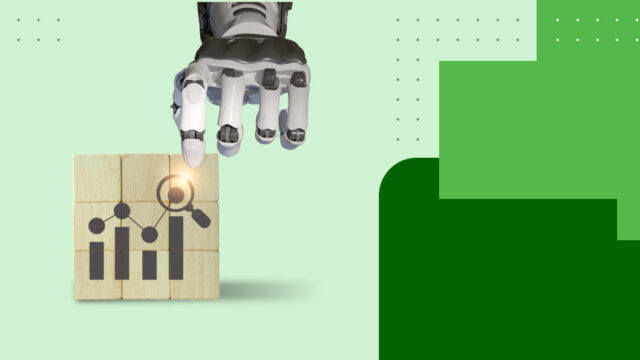
What to Know About Artificial Intelligence in Accounting
Understand the benefits and limitations of AI in accounting.
Artificial Intelligence (AI) has long been the domain of science fiction films and literature. However, as the technology has advanced, the possibility of AI becoming an intrinsic part of our daily lives is rapidly becoming a reality.
As an accounting professional, you may have numerous questions about how AI will affect your practice. Will you have to modify your everyday activities? Will robots or machines make your role obsolete? Are there ways you can use AI to your advantage? Before answering these questions, you must first understand what AI is.
What is AI?
Artificial intelligence is incorporated into computers or robots artificially, unlike human intellect, which is naturally ingrained within, and fostered by, humans. These non-human machines can comprehend, analyze and interpret data thanks to the inclusion of AI.
Artificial intelligence applications use machine learning to create algorithms that become “smarter” the more you use them. AI, in essence, finds patterns in data to evolve in ways that outperform human intelligence.
Recent advances in AI
One of the most seminal developments in AI technology is Chat generative pre-trained transformer (Chat GPT). Chat GPT is an example of chatbot technology. Developers designed chatbot technology to comprehend human language and provide intelligent responses to foster an artificial yet successful communication exchange.
While Chat GPT is a helpful tool for accountants who need assistance generating text for messages or letter templates, there are limitations to Chat GPT accounting. Chat GPT requires a massive quantity of data to maintain accuracy, which takes time to accumulate. Furthermore, compliance organizations have not yet fully regulated privacy and consent guidelines for chatbot output, creating a legal gray area that many professionals should prudently avoid.
Other common examples of recent AI advancements include suggestions generated by internet search engines, recommendations provided by platforms, such as purchasing and streaming services, and two-sided interactions with virtual assistants, such as Siri and Alexa.
How can AI technologies be used in accounting?
AI technology’s capabilities make it an ideal addition to any accounting professional’s toolkit. However, understanding that AI can augment, not replace, human labor is crucial. A successful practice will learn to utilize the tech while still recognizing and implementing the human touch as necessary.
In accounting, AI enables professionals to spend less time on menial tasks, increase efficiency and deliver more valuable products. However, to truly benefit from all that artificial intelligence offers, you should first learn more about its uses. The primary ways you can use AI technologies in your accounting practice include:
- Data input and administration: AI can help with bookkeeping by eliminating the time-consuming, repetitive tasks involved in the entry and governance of information within a data warehouse.
- Financial reconciliation: For too many firms, the reconciliation process is clunky, inefficient and prone to errors and double work. With audit automation, AI can streamline financial reconciliation by reducing the staff and hours needed to complete this essential function.
- Invoice and transaction management: Processing invoices and transactions is a vital routine you must complete promptly and precisely. AI allows you to virtually eliminate human error, ensure timeliness and create professional products that are vital to your practice.
- Report generation: AI’s effectiveness in sorting, classifying, extracting and arranging data makes it invaluable for generating customized reports quickly and accurately. These reports can be used in client communications, internally for review and performance evaluations, or to identify trends or patterns that require action.
What makes AI effective?
The hallmark of effective AI is that it is always working for you. The aim is to provide a structured, steadfast framework while continuously evolving.
To foster healthy collaboration, your AI should facilitate easy connectivity across departments and applications, regardless of your team members’ locations. A cloud-based environment ensures quick access to the key metrics that impact their work, while workflow automation keeps everyone on track and working toward the same goal.
Security is paramount for any accounting practice, and you can use AI to safeguard your client’s data in a single, user-friendly environment that encourages accessible, efficient communication.
How is AI applied in today’s accounting practices?
Among the examples mentioned above, AI in accounting offers automation that allows you to provide your clients quick, consistent and accurate outcomes. Precision, punctuality and consistency should be fundamental objectives for any reputable accounting service, and using the advantages AI can provide will help you achieve these results.
In terms of compliance and security, AI can help your firm adhere to the ever-changing regulatory guidelines for the industry. Further, AI can identify troublesome patterns pointing to fraudulent activity or significant errors.
Lastly, and most importantly, automation will give you more time to focus on strategies that expand your practice and client base by eliminating the mundane yet necessary tasks that take up so many workday hours. You can finally prioritize the decision-making that drives businesses forward and push it to the top of your agenda.
Although the industry is just beginning to witness AI’s impacts, forward-thinking professionals are embracing the advantages it can bring to their practices. Those adopting it are already expanding their offerings, freeing up their time and providing their clients with a more timely, accurate service.








